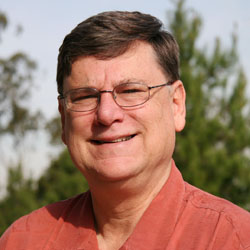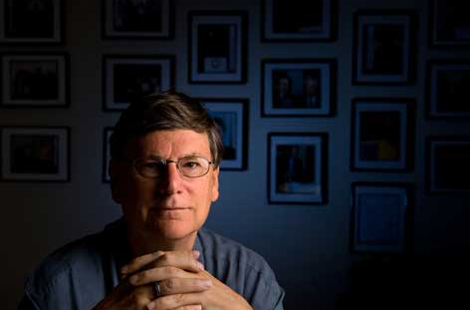Up for grabs

Up for grabs
- September 27, 2012
- U.S. voters are increasingly independent and undecided, says Dalton in new book
 If your Election Day 2012 Presidential vote is still up for grabs, you’re not alone,
says political science professor Russ Dalton.
If your Election Day 2012 Presidential vote is still up for grabs, you’re not alone,
says political science professor Russ Dalton.
“Today about 40 percent of Americans claim they are independent of either party,” he says, noting a historic high across the span of modern public opinion polling. “The new independents follow politics and they will turn out to vote nearly as much as partisans. They have no loyalty to either side and they will make up their minds late in the game.”
In The Apartisan American, Dalton examines this new block of potentially powerful voters and why they’ve parted ways with traditional party politics. Using the biennial American National Election Study and more recent Washington Post/ABC polling data, he finds the shift has less to do with scandal and controversy plaguing both sides of the aisle (as many have proposed), and more to do with changes in citizen values.
“Democratic citizens today are more informed about politics, and less deferential to people in authority,” he says. When coupled with a media that has become more critical of elites and more willing to report on misdeeds, the result is a more critical and independent citizen.
Below, Dalton discusses the make-up of this new voter block, how they’re changing politics, and what politicians looking to woo them need to know.
What do these new independents look like?
People often talk about independents as a homogeneous group. Actually, there are two very different groups of independents. The first group exists at the margins of politics, they are not very interested or engaged, and their independence reflects this disinterest. The new independents are very different. They are better-educated, interested in politics, and often young. They are concerned about politics but skeptical of political parties as representatives of their interests. Being a non-partisan is an affirmation of their own independence. Their votes are unpredictable, and thus a key source of new votes if a candidate wants to expand their base. Given the current balance between Dems and Reps, whoever gets the disproportionate number of independents has a distinct advantage in winning.
How has the Apartisan American changed political parties in the U.S.?
Independents make life difficult, or perhaps more challenging, for the political parties. Neither party nationally has close to a majority identifying with the party. With independents making up the largest block, the national parties have to be sensitive to their preferences in close elections.
Parties should also be concerned that a growing number of Americans are registering
as independents, which means their electorate in primaries is narrowing. The percentage
of non partisan registrants in California, for example, has doubled since 1996. Reforms
like the California open primary ballot are a natural consequence of dealignment.
Seventeen states had open or semi-open Republican primaries this year, which means
independents can also make decisions for either party.
But the challenging part is that independents view politics much differently than
party identifiers. For example, Romney had to appeal to the partisans to win the nomination,
but now he has to appeal to independents to win the general election. Many of the
positions Romney took in the Republican primaries are a turnoff for independents,
even moderate independents.
Consequently, parties and candidates have to appeal to very different types of prospective
supporters, and it is difficult to say two things at the same time in the modern media
age.
And if a party wins the support of independents in one election, victory is fleeting--you cannot depend on them at the next election.
What does all of this mean for the 2012 election?
One might almost say that Democratic and Republican party identifiers won't matter in 2012--it is the independent who matters. I say that because partisans enter elections with their decisions already made. For example, both Gore and Obama got essentially the same share of the vote from Democratic partisans, despite the differences between the candidates and the events that transpired between 2000 and 2008; similarly for Republican support for Bush in 2000 and McCain in 2008. Obama's improved showing in 2008 is primarily because he attracted 10% more votes from independents than did Gore. And as of a week ago, a new Associate Press-GfK poll estimates that 17 percent of likely voters are either undecided or still open to changing their voting preference.
How 2012 compares to 2008 will largely depend on independents.
In short, if Obama loses independents in 2012, he likely loses the election.
-Heather Wuebker, Social Sciences Communications
-photo by Steve Zylius, University Communications
Share on:
Related News Items
- Jewish American Heritage Month
- Reflecting on the assets and needs of Orange County's Asian American & Native Hawaiian and Pacific Islander communities
- A story worth telling
- California's prison death rates rose amid COVID
- COVID prison death rate increased 3 times higher than broader population: study




connect with us